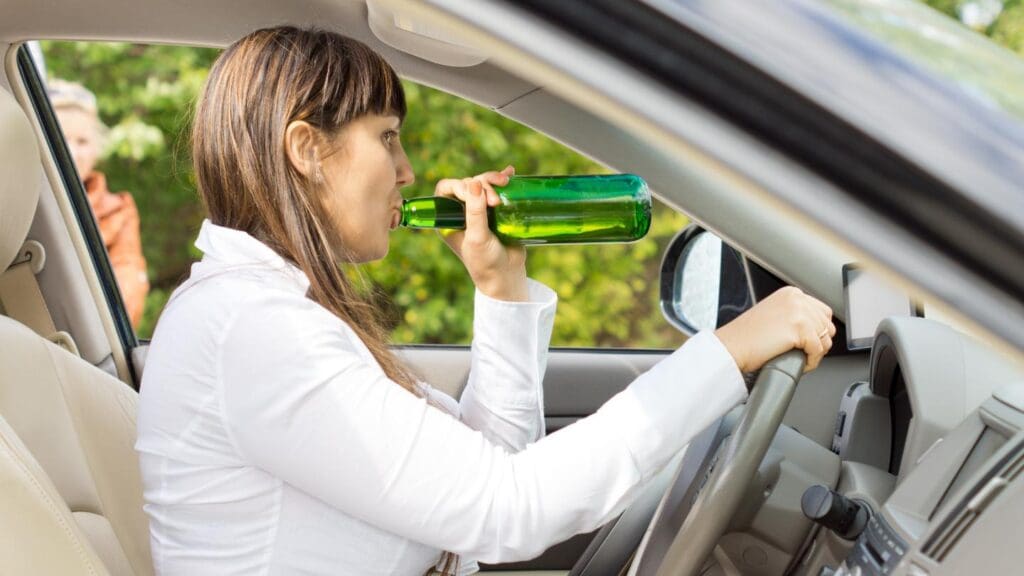In Minnesota, the length of a license suspension after a DWI conviction varies. For first-time offenders, the suspension can last 90 days if they consent to chemical testing, but refusal leads to at least one year of suspension. For repeat offenders, suspensions are significantly longer, ranging from one to six years, depending on the number of prior offenses. Aggravating factors like a high BAC can also extend the suspension period. This blog will explore these variations in detail and provide insights into how long a license suspension after a DWI conviction in Minnesota is during the suspension process.
Key Takeaways
- In Minnesota, a DWI conviction results in automatic license suspension, with varying terms for first-time and repeat offenders, and immediate revocation occurs upon arrest.
- First-time offenders face a 90-day suspension if they consent to testing, which extends to at least a year if they refuse, while repeat offenders encounter significantly longer suspension periods and stricter reinstatement conditions.
- Aggravating factors, such as a high BAC or refusal of chemical testing, can lead to extended suspension durations and additional requirements, such as enrollment in an ignition interlock program, impacting the ability to regain driving privileges.
Understanding DWI Convictions in Minnesota

In the state of Minnesota, facing a DWI conviction means grappling with considerable legal repercussions. Not only is it categorized as a misdemeanor subject to potential monetary penalties and incarceration, but one also experiences an immediate loss of driving privileges. This license revocation extends beyond automobiles to include off-road vehicles and motorboats, too.
Facing a DWI conviction in Minnesota comes with significant legal challenges, including immediate license revocation. A DWI arrest triggers the swift action of having your driver’s license confiscated on the spot, which effectively suspends your ability to drive legally. Before any court judgment occurs, Minnesota’s Department of Public Safety begins with what’s known as Administrative License Revocation (ALR), placing your license in suspension status immediately after being taken into custody. Should you choose not to submit to a chemical test during this process, you may face more stringent consequences leading to longer periods without your license when compared to failing such tests.
Rather than navigating this intricate legal process alone, it’s crucial to understand how professional legal guidance can help you address the penalties and procedural steps involved.
Those experiencing their first brush with a DWI charge are not exempt from prompt licensure nullification—the duration varies depending upon specific circumstances. Assuredly receive a notification confirming either its revocation or cancellation unless acquitted or if charges get amended away from being associated with DWIs. Meanwhile, they issue an interim seven-day permit facilitating critical transport needs before official suspension enactment takes place.
Grasping these instant and extensive effects that stem directly from a DUI arrest is vital for anyone attempting to manage through subsequent procedures post-incident.
License Suspension Periods for First-Time Offenders

Individuals facing their first offense in Minnesota endure a 90-day suspension of driving privileges if they consent to chemical testing. The duration of license suspension climbs to at least one year for those who decline the test. Aggravating factors, such as a high blood alcohol concentration (BAC), may further extend the suspension period.
While limited licenses are available to manage essential tasks, securing one often requires compliance with strict stipulations, such as participating in an ignition interlock program. During the time when their regular driving rights are under suspension, these individuals may seek a limited license that allows them to transport for critical needs like getting to work, school, or medical visits—aiding in preserving some level of routine daily life.
Securing such a restricted license calls for compliance with certain stipulations, which include participation in an ignition interlock device (IID) program and potentially clearing extra examinations. Fulfillment of these criteria can offer some relief from complete forfeiture of driving privileges.
Navigating these conditions can be complex, underscoring the importance of legal representation to manage these processes effectively.
License Suspension Periods for Repeat Offenders
Under Minnesota law, repeat offenders of DWI are subject to increasing penalties. They face longer suspension durations and more stringent conditions for license reinstatement. Longer suspension durations and more stringent conditions for license reinstatement apply after a second DWI offense, which may include gross misdemeanors, increased jail time, larger fines, and extended periods of license suspension—particularly if previous DUI convictions occurred within the preceding ten years.
With each additional DWI offense comes an escalation in penalties. By the third or subsequent offenses, suspension durations may extend to multi-year periods, with significant restrictions on regaining driving privileges. Offenses, individuals could face multi-year suspensions with diminishing likelihoods of regaining their driving privileges.
To have your license reinstated following a DWI conviction necessitates serving out the entire period of suspension as well as adhering to any extra mandates or stipulations set forth by the court.
Understanding these evolving penalties is critical, and professional legal guidance can help ensure all necessary steps are properly addressed to mitigate consequences.
Second DWI Offense
In Minnesota, committing a second DWI offense leads to the loss of driving privileges for one year, which can increase to two years when associated with a high blood alcohol concentration (BAC). To ensure accountability and prevent impaired driving, an ignition interlock device (IID) may be mandated. This device prohibits your vehicle from starting if it detects alcohol on your breath.
Before you are eligible to apply for license reinstatement after a second DWI offense, there is a mandatory wait time during which most of the suspension must be served. The path to regaining driving rights often includes compulsory participation in an alcohol treatment program and attendance at substance abuse meetings. These steps aim to address the underlying issues that contribute to repeated offenses while promoting safer habits behind the wheel.
Individuals who commit a second-time offense are subject to intensified administrative actions and sterner criminal penalties such as significant fines and possible jail time. These severe repercussions reflect Minnesota’s firm stance on repeat DWI offenses as threats against public safety.
It is important for those charged with their second DWI to understand these implications thoroughly so they grasp both immediate consequences and long-term impacts.
Third and Subsequent DWI Offenses
The consequences for individuals convicted of three or more DWI offenses in Minnesota significantly increase due to the greater threat they pose to public safety. Those with a third offense are subject to at least a three-year suspension, which may be prolonged based on specific factors.
Those facing their fourth DWI conviction could endure permanent cancellation of their license and an indefinite loss of driving privileges. In cases where there is felony-level involvement, typically characterized by four or more prior convictions, offenders might confront irrevocable revocation of their licenses along with requirements such as lengthy rehab programs, mandatory community service hours, and hefty fines.
Convicts receiving a third DWI within a decade will undergo extensive monitoring measures, including the use of SCRAM bracelets (Secure Continuous Remote Alcohol Monitors), installation of breath analysis devices in vehicles, random drug screenings, and regular probation check-ins.
Achieving reinstatement of one’s driver’s license becomes exceedingly difficult for those who have accumulated four or more previous DWI convictions – these individuals face no less than six years’ suspension time. It’s vital that anyone dealing with successive DWI penalties comprehend the progression severity impacts when trying to recover legal driving status after recurrent violations.
Read More: Ways to Beat a DUI
Aggravating Factors That Affect Suspension Duration

The duration of suspension of driving privileges can be substantially increased due to aggravating elements following a DWI conviction. Should the driver’s blood alcohol concentration (BAC) reach or exceed 0.16, this prompts an automatic extension of the suspension time frame. To have their driving rights reinstated, those found with a BAC at or above 0.16—or individuals with prior DUI convictions—must install and use an ignition interlock device (IID).
Refusal to undergo chemical testing results in even stricter penalties, including extended suspension durations and additional fines. Choosing not to undergo a chemical test when suspected of drunk driving leads to more severe revocation periods than if one was caught exceeding the permissible BAC limits during testing. These harsher penalties serve as deterrents against refusal and are instrumental in ensuring that impairment levels are accurately gauged by authorities in Minnesota, where higher fines and extended revocation durations Penalize refusals.
If there are any personal injuries arising out of the DWI event, it mandates adding no less than an extra three months to the initial license suspension term imposed on the offender. Understanding how these factors influence suspension durations and reinstatement conditions is crucial. A skilled legal professional can help you navigate these challenges while safeguarding your rights.
Limited Licenses and Eligibility
In Minnesota, individuals whose driving privileges are under suspension can apply for a limited license to fulfill essential transportation needs like commuting to work, school, or attending medical appointments. Participation in the ignition interlock device IID program is mandatory for eligibility, which serves as a preventive measure against operating vehicles after consuming alcohol.
Obtaining a limited license involves meeting specific program criteria, including adherence to routine checks and examinations. The financial obligations associated with an ignition interlock device include not only its initial cost but also recurring expenses, such as monthly fees for calibration and potential charges related to uninstalling the device.
During a period of suspension from driving due to DWI conviction-related sanctions or other violations, securing these restricted licenses demands compliance with established protocols of the state’s program, including successful completion of stipulated examinations. Professional assistance simplifies this process, ensuring all requirements are met while helping individuals regain conditional driving privileges.
The Administrative Suspension Process
After a DWI arrest in Minnesota, the administrative suspension process is crucial. This procedure starts right after the arrest, issuing drivers a provisional license valid for seven days, after which the suspension is fully enforced. Both criminal and administrative actions can affect one’s legal ability to drive. Drivers caught with a Blood Alcohol Content (BAC) of 0.08% or higher will face immediate license confiscation, leading to an automatic revocation of their driving privileges.
Once detained for a DWI, individuals receive a seven-day provisional license allowing limited driving before the official suspension begins. During this time, there is typically a 60-day window to challenge the suspension.
Challenging administrative suspensions or managing associated timelines often necessitates a deep understanding of the law. Legal representation can be invaluable in ensuring compliance while striving to minimize penalties. The administrative suspension process requires adherence to specific legal requirements and timelines, which must be precisely followed to remain compliant and explore options for restoring driving privileges.
Read More: The Stages Of A Court Case
Steps to Reinstate Your Driver’s License After Suspension
Restoring your driving privileges after a suspension requires careful adherence to Minnesota laws. Professional legal guidance can streamline this process, ensuring compliance and efficiency.
Initially, you must pass the DWI knowledge test and undergo a chemical health evaluation. These steps highlight your understanding of impaired driving consequences and your commitment to addressing any related issues. Legal assistance ensures no important details are missed.
After fulfilling the suspension period and judicial requirements, submit your license reinstatement form with fees, which can reach $700, plus court fines. High-risk drivers must also secure SR-22 insurance. Legal experts can simplify these tasks, ensuring timely and accurate documentation.
Repeat offenders face stricter conditions, including longer wait times for license restoration. Compliance with custodial sentences and participation in programs like ignition interlock systems may be required. Professional legal help is crucial for managing these demands and court obligations.
Navigating this process without expert support can be overwhelming. Engaging experienced legal counsel ensures thorough completion of each step, minimizing risks of delays or penalties. With professional backing, you can confidently approach reinstatement, knowing your rights and compliance are safeguarded.
Importance of Legal Representation

Dealing with charges of driving while intoxicated (DWI) and the potential for a license suspension can be daunting, underlining the importance of legal counsel. Engaging a criminal defense lawyer is vital to grasp the complexities of DWI statutes and potentially reduce the period of license suspension. Such professionals are committed to ensuring their clients fully understand their legal rights while scrutinizing any flaws in the evidence presented by prosecutors that could benefit their defense.
Legal representation not only provides a deeper understanding of the charges but also ensures the best possible defense by challenging evidence and advocating for reduced penalties. Securing skilled legal advice can greatly enhance one’s prospects for a desirable result. A well-versed attorney in DWI matters will adeptly steer through the intricacies of the judicial process, question incriminating proof, and represent your interests vigorously, striving toward securing an optimal resolution on your behalf.
Confronting the severe ramifications associated with a DWI conviction underscores why it’s invaluable to have an astute attorney fighting alongside you. Their expertise may prove critical throughout this challenging time.
Read More: How Long Does a DUI Stay on Your Record?
Summary
Understanding the complexities of DWI convictions and their subsequent effects on license suspensions is crucial for individuals facing these charges in Minnesota. The process begins with an immediate revocation of driving privileges, followed by a series of rigorous steps to regain them. Navigating this challenging path requires strict adherence to procedural requirements and often benefits from professional legal assistance.
At Lynne Torgerson Criminal Defense Attorney, we specialize in providing expert legal guidance as a DWI lawyer in Minneapolis. With a reputation for high ratings and reliability, Lynne Torgerson offers invaluable advice that can lead to a favorable resolution. We also offer services in St. Paul, Edina, St. Louis Park, Minnetonka, and Maple Grove. When diligence meets expert guidance, positive outcomes are attainable. Contact us today to secure your future.



